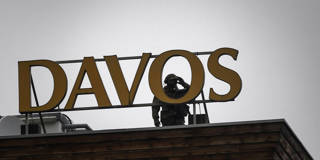It was clear at this year's gathering of business and political elites in Davos that the longstanding vision of a world without borders is no longer credible. Unfortunately, it was also clear that recognizing this basic truth is not the same as reckoning fully with past mistakes.
DAVOS – The World Economic Forum’s first meeting in more than two years was markedly different from the many previous Davos conferences that I have attended since 1995. It was not just that the bright snow and clear skies of January were replaced by bare ski slopes and a gloomy May drizzle. Rather, it was that a forum traditionally committed to championing globalization was primarily concerned with globalization’s failures: broken supply chains, food- and energy-price inflation, and an intellectual-property (IP) regime that left billions without COVID-19 vaccines just so that a few drug companies could earn billions in extra profits.

DAVOS – The World Economic Forum’s first meeting in more than two years was markedly different from the many previous Davos conferences that I have attended since 1995. It was not just that the bright snow and clear skies of January were replaced by bare ski slopes and a gloomy May drizzle. Rather, it was that a forum traditionally committed to championing globalization was primarily concerned with globalization’s failures: broken supply chains, food- and energy-price inflation, and an intellectual-property (IP) regime that left billions without COVID-19 vaccines just so that a few drug companies could earn billions in extra profits.